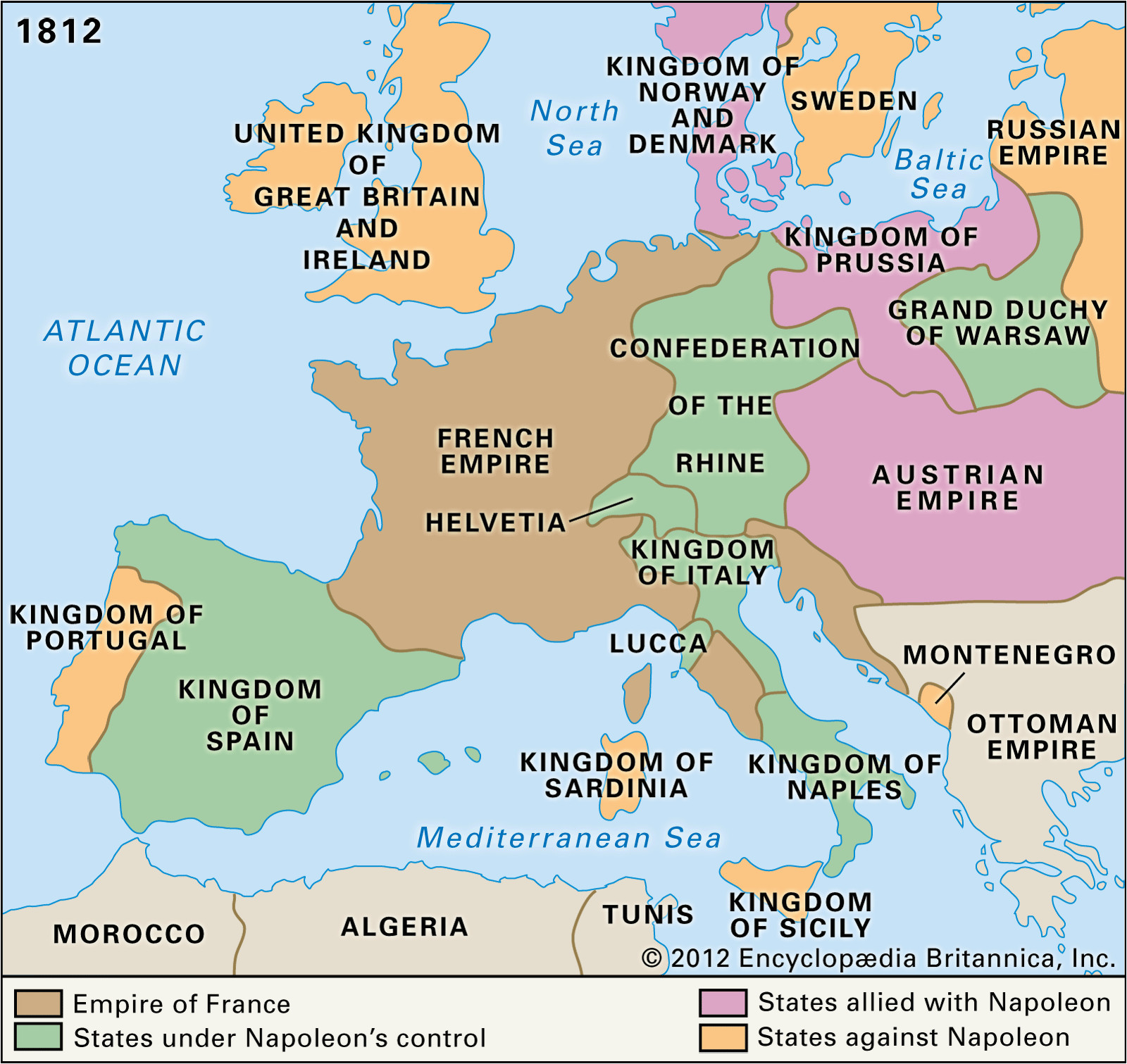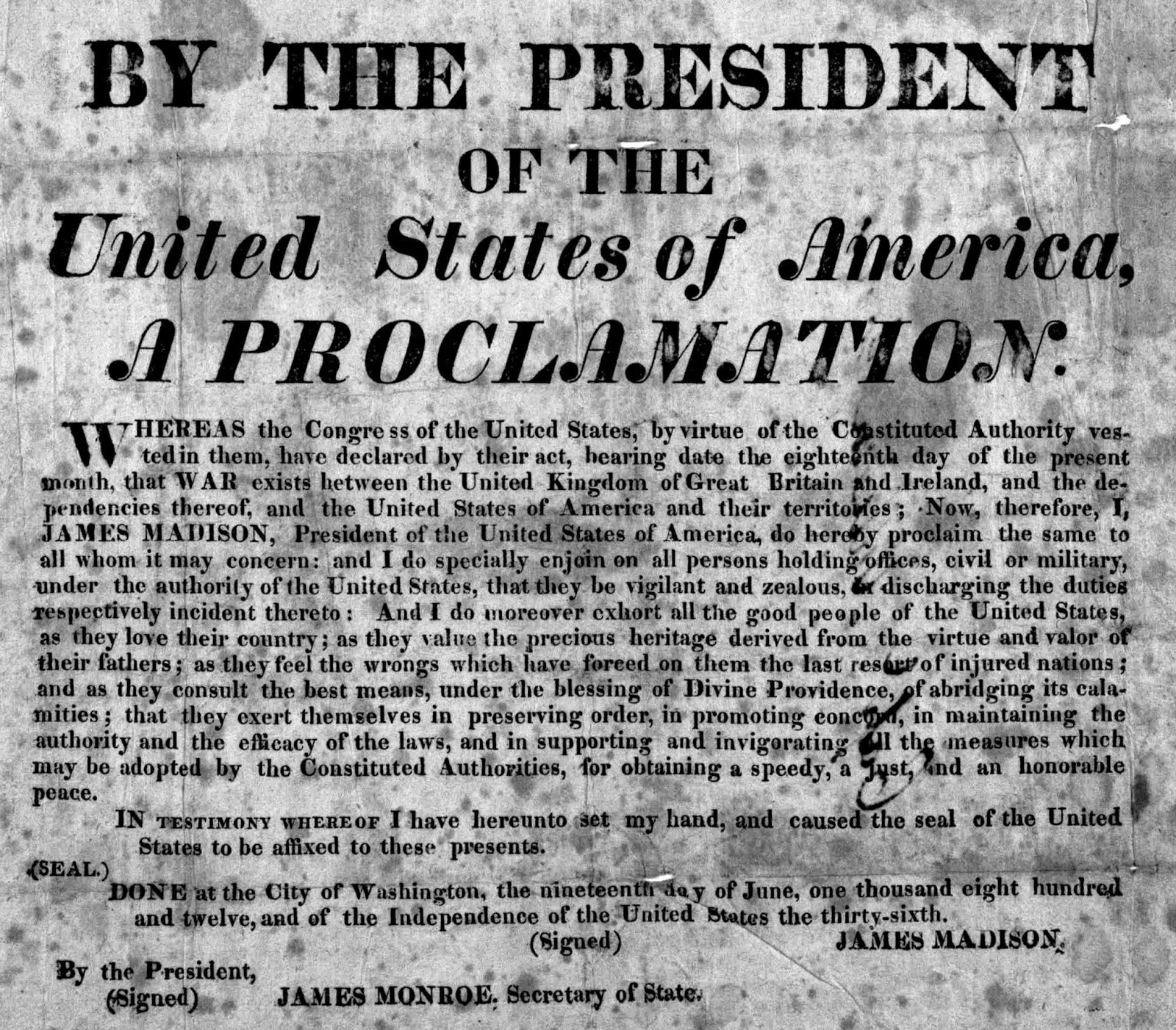

In October 1812 Great Britain offered an armistice (peace agreement) but would not agree to cease impressing American seamen. In return, the United States would bar all British seamen from serving on U.S.

States would be willing to make peace if the British would discontinue the practice of impressment. chargé d'affaires (the top diplomat when there is no ambassador in place) in London, told the British government that the United

War was declared in early June 1812, and later that same month Jonathan Russell (1771-1832), the U.S. As a result, almost as soon as the war began, the effort to end it through diplomatic rather than military means also began. Although these two issues led to Americans being eager to fight a war with Britain, the United States was not necessarily ready to fight such a war. The Native Americans believed that the settlers were encroaching on (gradually taking over) their land. Americans believed that the British were encouraging Native Americans to attack white settlers who were moving west. The other issue that led to the war was Great Britain's overly friendly relations with Native Americans. ships to capture deserters from their own navy, often wrongfully taking American citizens in the process. This policy was where British officials boarded U.S. The first was Britain's maritime policy of impressment in its war with France. The War of 1812 between the United States and Great Britain was provoked by two major issues.


 0 kommentar(er)
0 kommentar(er)
